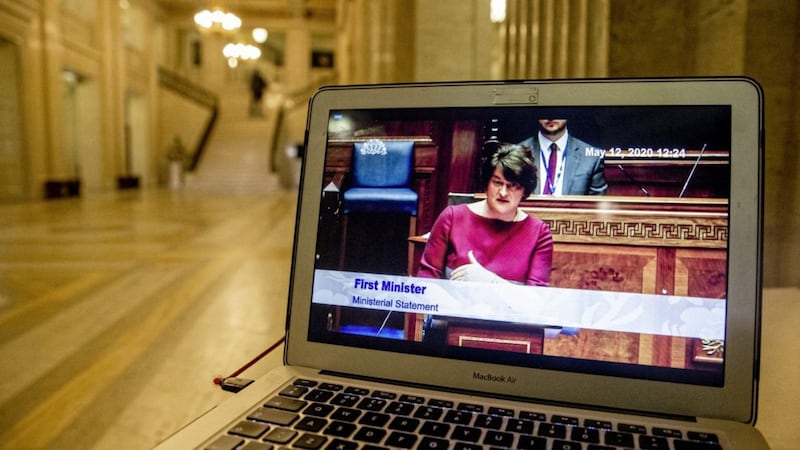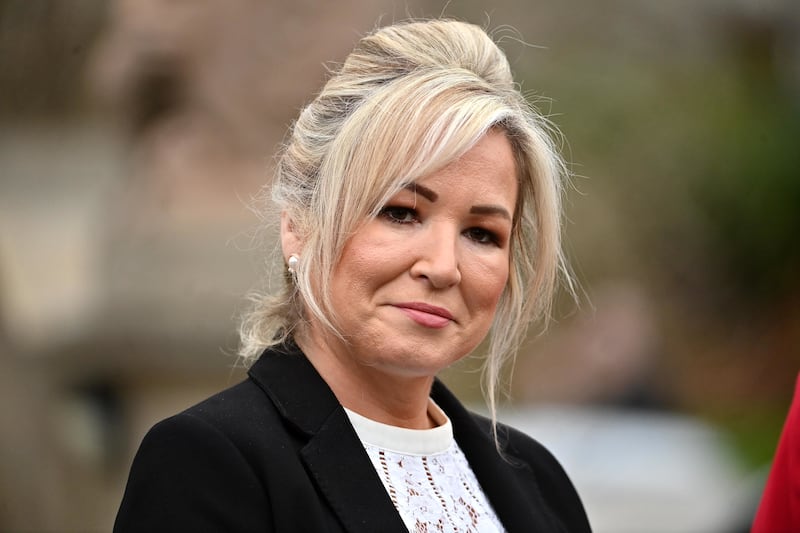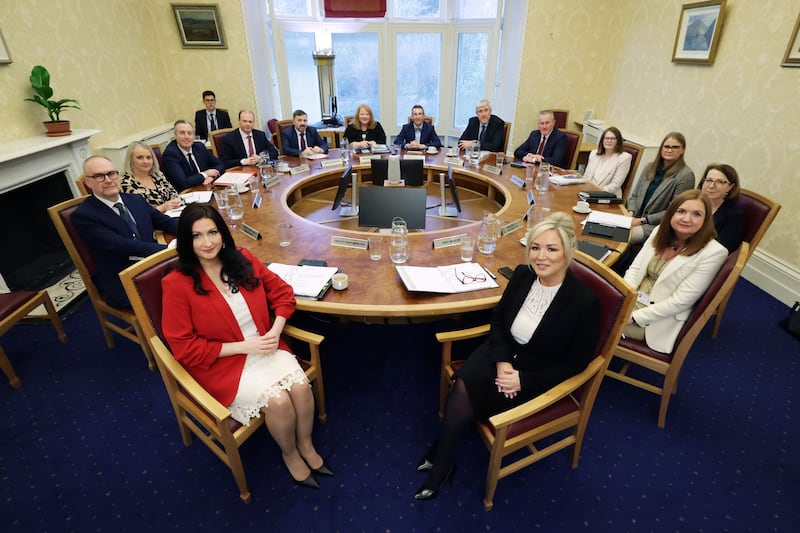STORMONT ministers have been urged to give a timetable for lifting the coronavirus lockdown after their five-phase plan was published without prospective dates.
Unlike plans announced in England and the Republic, Northern Ireland's approach to gradually easing restrictions does not include an indicative timeline.
Business leaders welcomed its publication but described the lack of timings as "disappointing" and warned it "offers businesses little certainty".
The first step includes permitting "drive-through church services", reopening garden centres and allowing some sporting activities such as golf and tennis.
The final step includes the reopening of restaurants, pubs and cafes, schools resuming full-time hours, and a return of competitive sport and spectators at live events on a restricted basis.
However, the plan stresses that steps in each recovery sector will not necessarily occur at the same time.
Read More: Family of west Belfast great-grandmother who died from Covid-19 left 'devastated'
Progress will be "led by the science and not by a calendar setting artificial deadlines", states the 12-page document, entitled Executive Approach to Decision-Making.
First Minister Arlene Foster and Deputy First Minister Michelle O'Neill defended the decision to exclude target dates.
Mrs Foster said the reproduction number (R) of Covid-19 – the number of people an infected person passes the disease to – is the key factor in deciding when to move from one phase to another.
She said the rate is currently at 0.79 and needed to be lower before commencing phase one.
"If we could with certainty set dates we would've set the dates," she said.
"But I think what we wanted to do was to make sure that we set out the step-by-step process and then keep the flexibility to be able to move when that R number is at an appropriate place."
The next review of lockdown restrictions imposed by Stormont is due by May 28, but the ministers said they would examine the R rate daily and may move forward with plans before then.
Both insisted that testing and tracing had to be improved before phase one was triggered.
Ms O'Neill said a timetable would undermine a commitment to be led by the science alone.
"I understand that people want to see that light at the end of the tunnel and we would have much preferred to be able to stand here and say 'we're going to do this on a certain date'," she said.
"But the reality is that we have to be guided by the science, what's in the best interest to public health."
Nine more deaths of patients who tested positive for Covid-19 in Northern Ireland were reported yesterday by health officials, bringing the total confirmed so far to 447.
The Irish government's five-stage plan begins on May 18 with a phased return of outdoor workers, while the last stage is expected on August 10, depending on whether the spread of the virus is contained.
The British government has outlined a three-stage plan for England beginning today, with the final stage listed as "no earlier than July 4".
Simon Hamilton, a former DUP economy minister and now chief executive of the Belfast Chamber of Commerce, said the lack of timings in the Stormont roadmap "offers businesses little certainty".
"Whilst it's positive that the executive has published its five-step plan to lift the coronavirus lockdown restrictions, it is disappointing that it does not include even indicative timings such as those that accompanied similar plans elsewhere which would allow businesses to plan properly for their reopening."
He said the "health of people is paramount" but restrictions on businesses "is also doing untold damage to the health of our economy".
"Businesses need some certainty and, sadly, today's announcement does not offer them that."
Robin Mercer, owner of Hillmount Garden Centre, which has three stores in Belfast, Newtownards and Bangor, urged Stormont ministers to give him a date to reopen.
He said he has been contacted by other garden centre owners who are so desperate that they are considering reopening early and taking the fine.
"Because garden centres in the rest of the UK are opening tomorrow, southern Ireland opening up on Monday, if we just had a wee bit of clarification," he told PA.
Dr Tom Black, council chair of the British Medical Association in Northern Ireland, welcomed the "emphasis on evidence" in considering when to relax the lockdown.
"When reviewing this plan our main concern has been will these steps protect doctors and ensure that our health service can cope," he said.
"The emphasis on evidence is very welcome as is the acknowledgement that this is having a hugely detrimental impact on our physical and mental health across Northern Ireland."
Most Stormont parties, of which five are part of the power-sharing government, were welcoming of the plan.
SDLP leader Colum Eastwood also welcomed it but said he was "disappointed" there was no timeframe.
"I believe that a timeline would have provided greater certainty and I know that people would have been sympathetic to any deviation from that timeline if circumstances change. This is a missed opportunity," he said.
But Sinn Féin MLA Colm Gildernew, the party's health spokesperson, said the lack of calendar dates provided "flexibility" as the pandemic "does not recognise timelines any more than it recognises borders".







